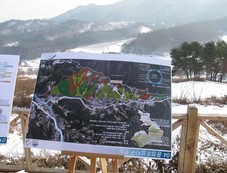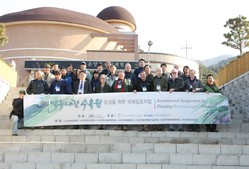John Veverka & Associates
Main menu:
- Home Page
- Our Range of Services
- Interpretive Coaching
- Interpretive Planning
- Interpretive Plan Outline
- Interpretive Training
- John Veverka Resume
- NEW Advanced Interp. Text Book
- InterpNEWS
- Library
- JVA NEWS, Courses and Updates
- Certificates
- Planning/Design of Interpretive Panels
- Interpretive Writing
- Interpretive Writing Course
- Interpretive Trails Course
- Interpretive Panels Course
- Introduction to Heritage Interpretation Course
- Interpretive Planning & Design of Marketing Brochures Course
- Training for Interp. Trainers
- Interpretive Exhibits Course
- Interpretive Master Planning Course
- Interpretive Planning for Scenic Byways.
- Critiquing and Coaching Interpretive Staff
- Advanced Interpretive Planning
- Interpretive Training Center Course Catalogue
- Interp. for International Visitors course.
- Interpretive Exhibits Evaluation
- Interp. Center Feasibility Analysis Course.
- Interp. for Commercial Tour Providers
- Interpretive Researchers Guide for Visitor Studies
- Interp. Planning for Historic Homes
- Heritage Interpretation Training Center
- Interpretive Planning for Botanical Gardens
- An introduction to planning and presenting live interpretive programs and tours for Museum/Heritage Site Docents and Volunteers.
- Developing Marketing Plans for Heritage & Tourism Sites and Attractions
- Interpretation Book Store
- Heritage Interpretation Resource Center
- Interpretive Planning for Historic Farms
- Developing Successful Partnerships
- Developing Interpretive Outreach Programs
- Community Interpretation Planning
- Interpreting Gravestones and Historic Cemeteries
- Using Interpretation to Accomplish Management Objectives.
- An Interpreters Guide for Survival Economics.
- Innovative Strategies for Interpretive Media and Services Planning.
- A Curators Guide for Developing Gallery Tours.
- Advanced Interpretive Writing - Technical Publications
- Advanced Interpretive Services for Managers, Supervisors, Team Leaders and Sr. Staff.
- Advanced Interpretation for Chiefs of Interp. - Interpretive Managers - Regional Interp. Specialists
- Interpreting Critical Issues.
- Developing Commercial Interpretation for Resorts, Cruise Ships, Campgrounds and Tourism Attractions.
- Planning and developing a new commercial tour guiding business.
- Interpretive Evaluation, Visitor Studies and Site Assessment Center
- The Center for Interpretive Planning Advancement & Excellence.
- Developing Requests for Proposals (RFPs)
- Planning and Facilitating Focus Workshops
- Planning for Interpretive Experiences
- 40 Years a Heritage Interpreter
- Interpretive Techniques - The Rest of the Story Course
- Certified Professional Interpretive Planner Certificate
- Certified Professional Interpretive Program
- Certified Professional Interpretive Writer certificate program.
- Visitor motives for attending interpretive programs.
- Exhibit Rehab Course
- Developing Training Workbooks & Manuals
- Planning for Railroad Museums and Sites.
- Climate Change Interpretation Course.
- When there's nothing left but the story - interp. storytelling.
- Interpreting Legends Myths and Fables
- InterpSHARE - Seminars 2022
- Interpreting Invasive Species
- Interpretiing Edible Insects
- Interpretaive Planning for Climate Change
- HITC Climate Crisis Resource Center
- PUP Members Only
- Starting a new Interp Consulting Business
- Panels 4 Week Course
- Interpretive Writing - 4 Week Course
- Marketing - 4 Week Course
- Intro to Interpretation - 4 Week Course
- Interp Climate Change - 4 Week Course
- Exhibit Rehab 4-Week Course
- Level 1
- Johns Interpreters Blog
- John Interpreters Blog 2
Interpretive Planning for Botanical Gardens

Interpretive Planning for Botanical Gardens
and Arboretums.
11 Units - 3 CEU credits, $250.00






Interpretive Planning and staff training for the National Arboretum of South Korea, and Interpretive Master Planning for the Baekdudaegan Arboretum and Forest Sanctuary and Discovery Center (National Arboretum of South Korea).
JVA is pleased to announce our new e-Live interpretive training courses offered by Professor John Veverka.
Botanical gardens and arboretums offer their visitors special opportunities unique to their missions and settings. With outdoor garden displays and demonstration areas reflecting the seasonal nature of gardens, and incorporating the arts into the garden experience, visitors can be motivated to "try at home" gardening experiences and techniques. Likewise interpreting the problems of climate change on world-wide habitats, and problems with invasive plants are also topics botanical interpreters are dealing with more and more. Our experience over the past 40 years in developing interpretive plans, trails and staff training for botanical gardens and arboretums as well as a wide range of heritage sites and attractions, will be shared with course participants in developing interpretive plans for their new millennium visitors and today's environmental challenges.
Before you start this course visit with me at: https://youtu.be/MJmsU0mrJR0
Resources you will be provided with:
* John Veverkas new (2013) college textbook Two Volume e-book Set:
* Interpretive Master Planning - Strategies for the New Millennium
* Interpretive Master Planning - Philosophy, Theory and Practice.
* Samples of interpretive exhibits, signage and outdoor displays for botanical gardens.
* Additional handout materials.
Who is this course for?
* Individuals, agencies or organizations that may currently be involved with an interpretive
master planning project botanical gardens and arboretums.
* Individuals, agencies or organizations that are planning on developing an interpretive master
plan in the future for their site or organization.
* Botanical gardens/arboretums intending to use their interpretive planning as part of their
marketing plan (creating new market groups while managing current visitation).
* Individuals offering interpretive planning services who do not possess a college level degree in
interpretive services or who have not had any formal training in interpretive master planning.
* Any individual interested in advancing their knowledge and skill level in heritage
interpretation planning with a focus on Botanical Gardens and Arboretum.
This course will:
* Guide you in developing your interpretive plan yourself or with other staff members.
* Give you expertise in being an interpretive planning project manager.
* Give you direction is writing a Request for Proposal for hiring a consultant to do an
interpretive master plan for you.
* Give you specific details of what should be in an Interpretive Master Plan.
* Give you a skill level in reviewing draft interpretive master plans.
Course Goals:
Participants will:
- Understand the model of Interpretive Planning.
- Understand all the components of the Interpretive Planning Content Outline.
- Gain an understanding of developing a comprehensive interpretive theme and objectives for the
total botanical garden (interior displays and outdoor demonstrations and experiences).
- Learn the importance of developing an interpretive story-line flow chart.
- Learn how to develop standard interpretive site inventory and story development forms.
- Develop a 5 year implementation phasing strategy and implementation budget.
- Gain an understanding to the total interpretive planning process interpretive media would be
apart of.
- Understand how understanding your market groups affect your interpretive plan media, topics
and services planning.
- Feel confident in planning and designing successful interpretive master plans for excellent
future interpretive experiences for your market groups.
Your final project for this course will be:
Develop an interpretive master plan working draft for your botanical garden or arboretum.
About the Instructor: Prof. John Veverka

The National Arboretum of Korea (left) and presentation of the Baekdudaegan Arboretum and Forest Sanctuary
and Discovery Center Interpretive Master Plan during the Baekdudaegan Arboretum Site Planning Conference.
- B.S and M.S in Heritage Interpretation - The Ohio State University (Taught a course on
Interpretive Master Planning - wrote the first Interpretive Planning Text book).
- Ph.D. program in Interpretation at Michigan State University. (Taught introduction and
advanced interpretive courses including interpretive planning units.)
- Adjunct Professor Heritage Interpretation (summer heritage tourism institutes) North
Carolina State University, New York State University.
- NAI Certified Interpretive Planner and Trainer
- NAI Fellow
- Certified Professional Heritage Interpreter (Canada).
- Author of several interpretive planning/training college text books.
- Publisher of InterpNEWS - the International Heritage Interpretation e-Magazine.
- 40 years of interpretive planning, training and writing experience.
What are the units?
Unit One - An overview and review of the Interpretive Planning Model and interpretive
plan content outline. Overview of interpretive theory, principles and recreational learning theory (how your visitors learn and remember information in a recreational environment).
Unit Two - Interpretive Planning Outcomes. What are the objectives you want your
interpretive plan to accomplish, and what is your main over-arching interpretive theme that all
interpretation for your total botanical arden/arboretum needs to work to illustrate?
* Developing your main interpretive theme.
* Developing your learning, behavioral and emotional objectives.
* Developing your interpretive story line flow chart.
Unit Three - Interpretive Resource/Story Inventory - Where will interpretation occur. Existing interpretive opportunities as well as proposed interpretive opportunities.
* Botanical Garden interior displays/exhibits.
* Botanical Garden outdoor displays and experiences.
* Parking lot to entrance wayfinding
* Existing tour routes (guided or self-guided).
` * Inventory of Interpretive Experiences.
* Inventory of Current interpretive products or services.
* Developing your site inventory location map (exterior experiences).
Unit Four - Your market analysis.
* Who are your current market groups.
* What market groups do you want to add?
* What are the kinds of experiences you feel that your visitors want.
* Conducting visitor surveys.
* Visitor motivations for selecting and attending interpretive programs and
services.
Unit Five - Planning for Interpretation for School Groups.
Unit Six - Botanical Garden/Arboretum Carrying Capacity for visitation and visitation
management.
* Site visitor flow management.
Unit Seven - Developing interpretive media (and evaluation of existing interpretive media).
* Live guided tours
* Cell phone interpretation.
* Printed self-guiding booklets
* Interpretive videos
* Garden demonstration areas with interpretive signage.
Unit Eight - Developing Your Individual Interpretive site/feature interpretive assessment
and story development form sets. (Sample interpretive plans sent as example of
form use.)
Unit Nine - Developing your 5-year project implementation phasing strategy and implementation budget.
Unit Ten - Evaluation and pre-testing recommendations.
Unit Eleven - Final project - your interpretive master plan draft (if you are working on a actual interpretive planning project) or interpretive planning outline/check- list if you will be
working on a interpretive plan in the future.
Estimated time to complete this course is 30 hours but you can take your time if you are working on a planning project using the course as your guide. FYI - the average time to do an interpretive master plan for an average botanical garden, heritage area, park, etc. is about 14 working days - spread out over about 3 months allowing for research, reviewing drafts and then the final document.
When will the course start? You can start this course at any time and work at your own pace. It is estimated that it will take about 30 hours to complete this course. The cost of the 30 hours of training is $250.00 USD, which can be paid for by credit card or PayPal by clicking on the PayNow Button below.
As the course is limited to 10 participants at one time, if you would like to see if the course has current openings or have us send you the course Registration Form, or if you have any questions at all please feel free to ask: jvainterp@aol.com